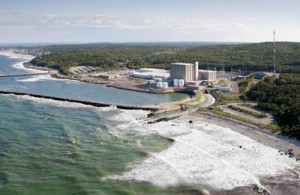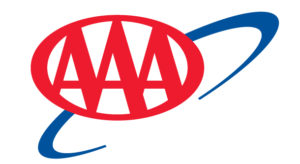
COURTESY PILGRIM NUCLEAR POWER STATION
PLYMOUTH – During a recent meeting of the Nuclear Decommissioning Citizens Advisory Panel, Plymouth/Barnstable State Senator Susan Moran highlighted the need for federal guidance in the decommissioning of nuclear power plants like the ongoing efforts at the Pilgrim Nuclear Power Station.
Moran said that Plymouth and the surrounding community has become a “spent fuel dump” as storage casks continue to be filled with over 4,000 spent fuel assemblies and prepared for relocation.
Holtec International, the company that has been overseeing the decommissioning of the facility since 2019, guarantees the casks’ integrity for 25 years, though the material waste stored within can remain radioactive for about ten thousands of years, according to Moran.
“There’s a local, regional and national public health, public safety and financial problem. But the sole responsibility and authority to solve the problem rests with the federal government,” said Moran.
“The Federal Department of Energy is ultimately legally responsible for the permanent storage of spent nuclear fuel. Despite the federal mandate contained in the Nuclear Waste Policy Act of 1982—nearly 40 years ago—the DOE hasn’t created a permanent national repository to store this material.”
Moran said that over 50 bills addressing the issue have been sent to Congress but none have passed.
First Plymouth and Bristol State Senator Marc Pacheco said that the problem is an international issue facing many countries who are also trying to further alternative forms of energy as the climate crisis looms and state and federal deadlines approach to cut carbon footprints.
Pacheco highlighted modular nuclear stations that are capable of utilizing recycled nuclear fuel, though some panel members were concerned with how effective the recycling process is at cutting down the total volume of waste.
Vice Chair Pine duBois said that the Northeast will be overburdened with spent nuclear fuel between all the stations across the region, and called on the The Council of State Governments to help address the issue of storing or repurposing the spent fuel.
DuBois said that Holtec was doing well in the decommissioning process, however the company can only store it until there is a government guideline to deal with the waste.
She also highlighted how countries such as France have investigated ways to reprocess spent fuel, and that scientific leaps will likely provide a solution for cutting down on the impacts of the nuclear waste without relocating it out of state where it will become the responsibility of another community.
Mike Jackman, district director for Congressman William Keating, said that the congressman is familiar with modular station setups popular in Europe that could repurpose the spent fuel and help mitigate the impacts of the waste on the environment.
However, Senate President Appointee for the advisory panel Mary Lampert said that reprocessing is not a viable solution for the community’s waste.
“It’s not the answer because it produces numerous additional waste streams that have to be managed, it’s exceedingly expensive, it’s exceedingly polluting, and it increases nuclear waste proliferation,” said Lampert.
She said that nuclear fuel recycling does not decrease the overall volume of waste, and, with it being such an expensive process, much of it is ultimately stored on-site at the processing facility which can create safety issues.
Forty-five of 62 total casks have been loaded with spent fuel assemblies from Pilgrim Nuclear Power Station, on schedule to complete the fuel campaign in November.
Greater-Than-Class C non-fuel waste containers are also on-schedule and will follow the fuel campaign in December.
Demolition of facilities, meanwhile, will be held off on until necessary asbestos surveys can be completed.
The panel will assemble and deliver its yearly review to Governor Charlie Baker’s office after its last meeting of 2021 in late November.






















